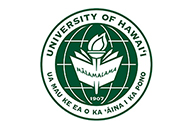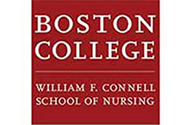6 Best Online RN to DNP Programs – 2025
Written By: Editorial Staff @ NursingProcess.org
 As the face of nursing evolves to meet the constant changes in healthcare, many RNs with an associate degree in nursing find themselves looking for ways to add more diversity to their careers or make changes in their roles within the industry. However, personal, and professional responsibilities leave some feeling as if there is not enough time in their schedules to accomplish those types of goals. If you are a registered nurse who wants to directly pursue a DNP in nursing but want some control over your schedule, you may be interested in what online RN to DNP programs have to offer. The best online RN to DNP programs for 2025 featured in this article provide registered nurses the chance to pursue a terminal nursing degree with fewer disruptions in their already busy schedules.
As the face of nursing evolves to meet the constant changes in healthcare, many RNs with an associate degree in nursing find themselves looking for ways to add more diversity to their careers or make changes in their roles within the industry. However, personal, and professional responsibilities leave some feeling as if there is not enough time in their schedules to accomplish those types of goals. If you are a registered nurse who wants to directly pursue a DNP in nursing but want some control over your schedule, you may be interested in what online RN to DNP programs have to offer. The best online RN to DNP programs for 2025 featured in this article provide registered nurses the chance to pursue a terminal nursing degree with fewer disruptions in their already busy schedules.
FOLLOWING ARE THE 6 BEST ONLINE RN TO DNP PROGRAMS IN THE NATION FOR 2025
(These RN to DNP programs are ideal for Registered Nurses with an Associate Degree in Nursing who wish to pursue the DNP Degree.)1. University of Hawaii at Manoa – Honolulu, HI

Concentrations Offered:
Adult-Gerontology Primary Care Nurse Practitioner, and Family Nurse PractitionerSo, you are already playing a pivotal role in healthcare, treating patients as an entry-level nurse, but now you feel passionate about influencing change in patient-care, then enrolling into one of the country’s well-known RN to DNP online programs would serve you rather well. For RNs ready to take their education to the doctoral level, the University of Hawaii at Manoa offers two RN to DNP programs online; an AGPCNP and FNP. Regardless of the program, you will be prepared as a highly-skilled NP, ready to join the state’s advanced practice nursing workforce. Whether you find your calling in primary care or taking care of the special needs of the geriatric population, you will graduate with exceptional skills to make a difference in the lives of patients within your chosen population foci. Also, because of the college’s partnership in the Nursing Education Exchange program, you will be allowed to take courses at other partner colleges. This means if the courses offered at UH Manoa do not fulfill your career goals you will have the flexibility to enroll at other colleges for a common tuition cost.
Program Details:
To be eligible for admission, you must have an ADN/nursing diploma and a non-nursing bachelor’s degree. Since you have not already completed your BSN, the program takes you through bridge courses before starting with the MSN, NP, and DNP courses. The coursework is offered through a hybrid format, requiring you to visit the campus for intensives. In addition to the bridge courses, to graduate, you must complete around 77 credits, which most students finish within four to six years. Some of the topics that form a part of your coursework include health law, health politics & policy, pathophysiology, health care technology & informatics, and nursing leadership. Additionally, you also master skills in managing the illness of patients within your chosen area of emphasis.2. Union University - Jackson, TN

Concentrations Offered:
Family Nurse Practitioner and Psychiatric Mental Health Nurse PractitionerWhat if you can take your associate degree in nursing straight to the doctoral level, wouldn’t it be a turning point for your career? Well, to achieve this advancement, enrolling in an online program would be prudent as it will be easier to fit in the new academic schedule into your life. Counted among the best online RN to DNP programs in the nation is the DNP offered by Union University. Driven with excellence, here you will receive Christ-centered education that prepares you in two advanced practice roles of a family nurse practitioner and psychiatric mental health practitioner, depending on which track you enroll in. By completing this program not only will you help fill the gap left by the shortage of primary care providers, but you will also be able to explore lucrative employment options in the ever-changing healthcare field.
Program Details:
The college accepts applications on a rolling basis so you can apply throughout the year. The program is offered only on a full-time basis with cohorts starting in August each year. This RN to DNP is open to registered nurses with or without a non-nursing bachelor's degree. While the undergraduate nursing courses for both the pathways remain the same, you will require completing more general education credits if you enter the program without a bachelor’s degree. After completing these undergraduate courses, you will continue with the program to complete the BSN to DNP courses comprising credits anywhere close to 73 and clinical hours adding up to 1220. At the end of the four-year coursework, you will be eligible to take the certification exam within your chosen specialty. Some of the topics you will be educated on include, organizational leadership & management, healthcare policy & economics, epidemiology, methods for evidence-based practice, and management of illness.3. University of Michigan-Flint - Flint, MI

Concentrations Offered:
Family Nurse Practitioner, Adult Acute Care Nurse Practitioner, Adult Gerontology Nurse Practitioner, and Psychiatric Mental Health Nurse PractitionerAs an ADN educated registered nurse, if you have been aspiring to attain leadership in nursing, the next best thing to do would be to shortlist the best online RN to DNP programs in the nation that take you to the highest level of clinical practice through the convenience of online classes. University of Michigan-Flint’s online DNP program, designed for registered nurses can certainly be among the top on your list. The college is known for its stellar online graduate education, little wonder that the US News & World Report ranks it among the best in the country. The DNP program prepares you for nurse practitioner roles in the care of families, adults & the elderly, and psychiatric mental health patients, depending on the NP area you choose. Here, you will be gain access to the university’s vast resources not only at the Flint campus but also at its sister campuses in Dearborn and Ann Arbor. Also, should you desire to master the business aspect of healthcare, the college combines this DNP with an MBA in Health Administration.
Program Details:
At UM-Flint, with four online RN to DNP programs, one each in FNP, AAACNP, AGNP, and PMHNP, you can choose the NP specialization based on your area of interest. To qualify for admission, you must be a registered nurse qualified either with an ADN or diploma, having a GPA of at least 3.50. Also, you must have a bachelor’s degree in a non-nursing field. Upon being accepted into the program you will choose between part-time or full-time classes and first complete the BSN equivalent courses within two years of application. These courses can be taken online. After you complete these courses you begin with the graduate-level coursework, which is mainly offered through the distance format, requiring minimal campus visits. Regardless of the NP specialization, most students complete this program within four to six years, after which you will be eligible to take the certification exam within your chosen population foci. Graduation requires completion of around 72 to 78 credits in addition to the BSN equivalent courses.4. Delta State University - Cleveland, MS

Concentrations Offered:
Family Nurse PractitionerDelta State University puts you on a path of healthcare leadership by providing a DNP degree that builds up on your previous nursing education. If you are a busy working nurse, keen on enrolling in one of the best RN to DNP programs online that facilitates earning a doctorate without keeping your current life schedule on hold, then Delta State could be a preferred choice. Through the RN to DNP path, you are prepared for health promotion and disease prevention of patients across the lifespan. So, you enter the program as an RN with an associate degree and leave the college with a BSN, MSN, and DNP degree, besides gaining the eligibility to take the FNP certification exam. Graduates of this program play leadership roles across the state, providing evidence-based nursing care in a variety of primary care settings.
Program Details:
To be eligible for this DNP-FNP program you must have an RN license and an associate degree in nursing. Unlike few other online RN to DNP programs, here you do not require a non-nursing bachelor’s to apply. Because you do not have a bachelor’s degree, the program entails completing 27 undergraduate credits in the first two semesters, after which you will be awarded a BSN. Thereafter you progress through the program to complete 51 credits towards the MSN-FNP degree. Since you are conferred with a master’s degree upon completing the MSN courses you will also gain the eligibility to take the FNP certification exam. At this point in the program, you will be prepared to explore job opportunities as a certified FNP, while still completing the remaining doctoral courses. To sum it, graduation requires completing 27 undergraduate credits and 80 credits in MSN-FNP-DNP courses. Also included in the curriculum are the total of 1440 hours of clinical practice.5. Otterbein University - Westerville, OH

Concentrations Offered:
Family Nurse Practitioner and Psychiatric & Mental Health Nurse PractitionerWith two online RN to DNP programs, Otterbein University prepares you to offer the highest level of care in either family health or psychiatric mental health. Outstanding pass rates on the NP certification exam, a student-friendly online learning environment, and an expert faculty are some of the reasons that make Otterbein a popular choice. If you are looking at a flexible academic schedule to balance out work and college, then here you take online classes and complete the clinical experiences within your community.
Program Details:
Both these online RN to DNP programs are open to nurses with an associate degree and a valid RN license in Ohio. Also, you must have at least one year of work experience as a nurse. Upon enrollment, you must complete 13 credits in undergraduate courses followed by 66 graduate credits. Throughout the coursework, you must maintain a cumulative GPA of 3.0. The undergraduate courses teach you about evidence-based practice, professional practice & communities, and the transition to graduate studies. Thereafter you take the advanced practice courses that educate you on advanced pathophysiology, pharmacology, and health assessment. The DNP core mainly focuses on quality practice, policy & politics, leadership, and healthcare informatics. Finally, the specialty-specific courses train you to manage the illness and health conditions of patients across the lifespan. The program ends with a DNP scholarly project where you apply the newly acquired knowledge to solve a health care problem.6. Boston College - Chestnut Hill, MA (This is an On-Campus Program)

Concentrations Offered:
Adult-Gerontology Primary Care Nurse Practitioner, Family Nurse Practitioner, Pediatric Primary Care Nurse Practitioner, Psychiatric/Mental Health Nurse Practitioner and Women's Health Nurse PractitionerBoston College’s RN to DNP can take your entry-level nursing career to advanced nursing practice positions and prepare you to work in various types of clinical settings. With five NP specialties, you can choose a path based on your interest. Although online RN to DNP programs are popular, if you are someone who prefers the personalized learning experience of face-to-face classes, then here you will complete your degree through the on-campus format. With the flexibility of part-time & full-time classes and two start dates in fall and spring, you can get enrolled as per your convenience. Along with rigorous didactic classes, the college also provides extensive clinical learning opportunities throughout Boston, where you practice advanced nursing skills at some of the world’s prominent medical centers.